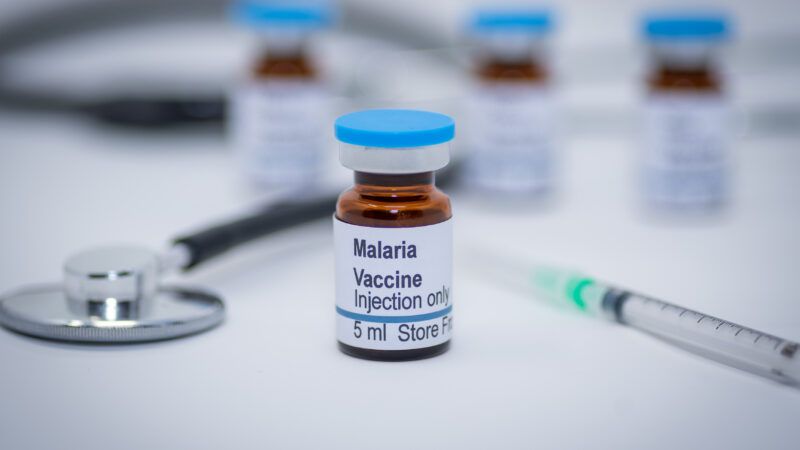Good News: The World Finally Has a Malaria Vaccine
This is great progress, but there is even more in the vaccine pipeline.

Malaria cases annually number nearly 230 million, and the disease kills more than 400,000 people—mostly children—each year. Until now, the search for an effective vaccine against the parasitic disease spread by mosquitoes has been fruitless. Today, the World Health Organization (WHO) announced that it is recommending the approval of the Mosquirix malaria vaccine developed by GlaxoSmithKline. The research on this vaccine began in 1987 and was earlier this year shown to be 50 percent effective in preventing malaria infections in the first year of Phase III clinical trials in children in three African countries.
Compared to the 95 percent efficacy of mRNA COVID-19 vaccines, 50 percent may not sound like much, but a 2020 modeling study estimated that rolling out the vaccine in the areas with the higher prevalence of the illness could prevent 5.3 million cases and 24,000 deaths annually.
"This is a historic moment. The long-awaited malaria vaccine for children is a breakthrough for science, child health and malaria control," said WHO Director-General Dr. Tedros Adhanom Ghebreyesus in a statement. "Using this vaccine on top of existing tools to prevent malaria could save tens of thousands of young lives each year."
The malaria parasite enters the host's bloodstream through a mosquito bite. The vaccine prevents the parasite from infecting the liver, where it multiplies and from which it then reenters the bloodstream to cause disease by infecting red blood cells.
The even better news is that there are several promising malaria vaccines in development including an mRNA version by BioNTech, the German company that developed a highly effective mRNA COVID-19 vaccine in partnership with Pfizer. The company aims to begin clinical trials in 2022. Note that Mosquirix took more than 30 years to develop. If BioNTech's vaccine works, it could be ready in less than 5 years.


Show Comments (103)